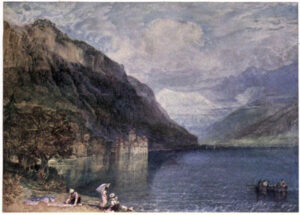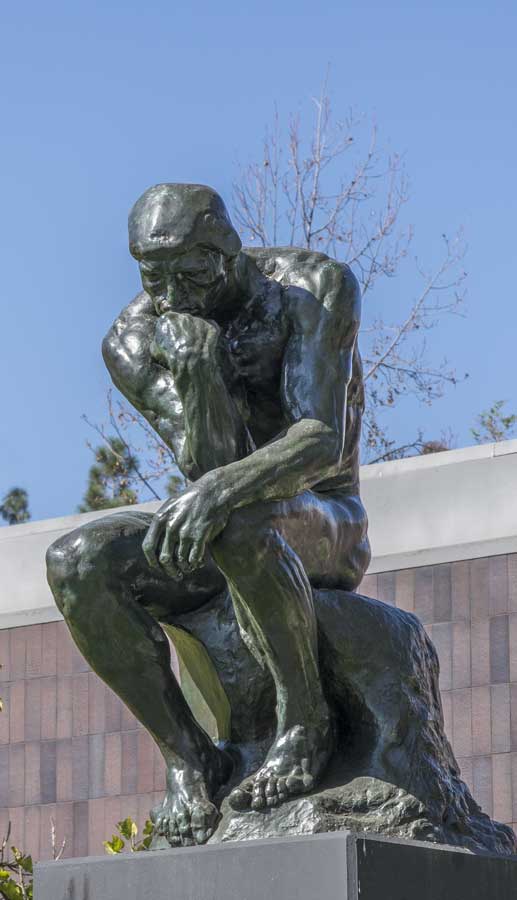An argument for creation from the mind of the observer.
Why is my faith in God neither blind nor arbitrary? Why are the creation stories of the Bible rational? Romans 1:17 “the just shall live by faith.” I think a good place to start is a discussion about whether or not the world we live in requires a first mover or if matter and energy without intention could have caused the complexity of the life we observe. Intention implies there is now or was in the past, a mind involved in creation. Do both parties in the discussion believe they have a mind? Assuming they answer yes, do they think that they inherited their mind from a chain of ancestors in the past? Looking back at history every person alive today must face the fact that one of two miracles happened, their ancestor’s minds arose through an unknown interaction of matter and energy, or there was a first mover like the God described in the Bible. This sort of metaphysical approach, I think has to be the starting point of understanding the creation accounts in the Bible. Continuing in Romans 1: 20 “For since the creation of the world God’s invisible qualities – his eternal power and divine nature have been clearly seen, being understood from what has been made, so that men are without excuse.” What could be more clear to each person than the existence of their own mind? The greatest evidence that God created the world is the mind of the observer. So, I think the real difficulty with the creation accounts is not in the vagaries of language, it is in each man’s mind. Is the man “suppressing the truth,” that God has made apparent to all without the need for physics? Whether a person believes his ancestor’s evolved from a primordial soup or from the creative intent of God. Both have made a leap of faith. Before we get to the question of cosmogony, I think it is helpful to examine our axioms and come to an agreement on how our minds came to exist.
- Operational axioms for our discussion
- Reason
- Mind
- Knowledge possible
- Communication
- Agency
- Freedom of decision
If, on the other hand, you answer the heredity question as a natural man and believe that what we experience as our mind arose somehow from the properties of matter and energy. I think you make a much larger leap of faith than I do as a Christian. How does the natural man explain the love he feels for his children? How does the natural man explain the axioms we are using to communicate? To name a few: that knowledge is possible, that we have a mind that can reason and communicate, and that we are free to decide what to believe. The most important axiom to this discussion is the belief that we are free moral agents capable of making judgments about right and wrong. It occurs to me that the man of faith has some basis in history and in his own observations for his beliefs.
So, I think the real difficulty you have with the Biblical accounts is not in the vagaries of language, and the historical record. The difficulty for you is believing what Jesus said, “You study the scripture diligently because you think that in them you have eternal life. These are the very Scriptures that testify about me,” John 5:39. Christianity is a faith in the supernatural. The greatest evidence of the supernatural is the resurrection of Jesus Christ. A real historical event that can be proven, (click this link for Lee Strobel’s book*) but I will not go into that now. Let us get back to whom I believe my ancestors inherited their minds from, Colossians 1:17 “…all things were created by him and for him.” Where did my mind, that seeks to communicate with you, come from? Christ. How were all things created? Christ. That is what Jesus means when he says, “I am the Alpha and the Omega,” Revelation 1:8
The belief that God is sovereign over all events does not mean that he predestines every event. God has limited himself; he does not create square circles or do things that are contradictory to his natural order. For the time being God has created a world with free moral agents who go about doing evil and good things. Apparently, this level of freedom is necessary for God to grow our souls to a level of maturity where we are able the have fellowship with Him. This is another way we are created in his image; we are free to love each other. Indeed, most would agree that a mate that freely chooses a loving relationship is superior to coercion. There are two key points at the beginning of Job that I am afraid you missed, God and Job love each other, and Satan challenges God’s assertion that Job’s love is real, Job 1:9. “Would you discredit my justice? Would you condemn me to justify yourself?” Job 40:8.
On the question of theodicy. It is apparent from history that no amount of debate is going to settle the question for certain. But I am certain that God expects each person to consider theodicy carefully in their own mind. I think it is reasonable to think that God expects us to be consistent in how we judge God, ourselves, and others. When a person points to the problem of evil and concludes that God is not good or does not exist. He is not applying the same principle to his own life. For instance, when we have children, we know that we cannot prevent them from suffering. But we have them anyway because we judge that the joys of our relationships outweigh the hardships of life. Like all parents, God works for the good of his children and provides ways for them to escape suffering.
*This post includes a link to a book on Amazon. If you purchase from this link, Amazon will pay me under their affiliate program at no cost to you. Thanks for supporting my efforts.





2 Responses
In the beginning God created.